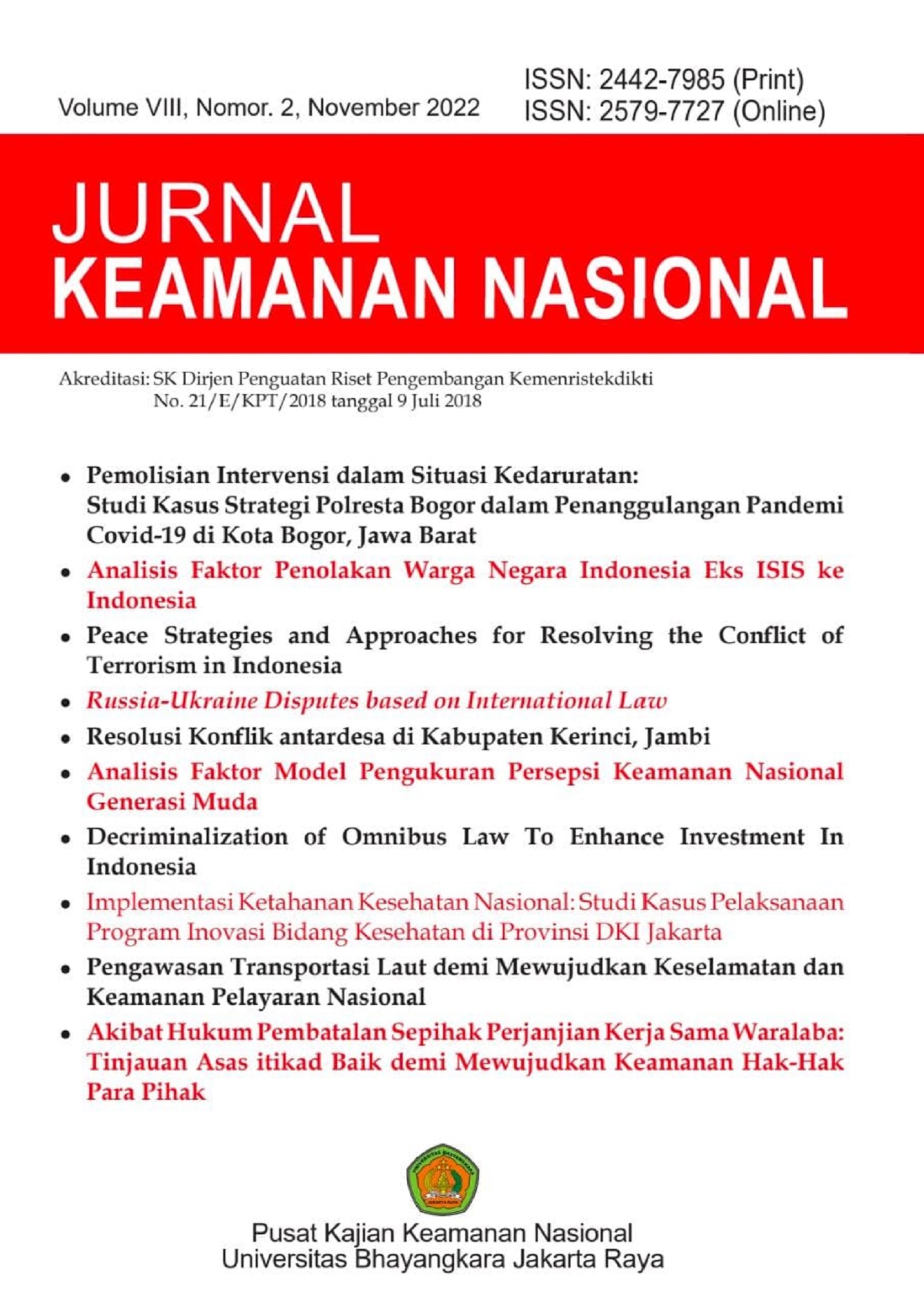Pemolisian Intervensi dalam Situasi Kedaruratan: Studi Kasus Strategi Polresta Bogor dalam Penanggulangan Pandemi Covid-19 di Kota Bogor, Jawa Barat
Intervention Policing; Covid-19 pandemic; Emergency Situation
DOI:
https://doi.org/10.31599/yb16y453Abstract
This article argues for the importance of building an intervention-based policing model in an emergency situation. Through a case study of the Bogor Police’s strategy in dealing with the COVID-19 pandemic, this article finds gaps in empirical and theoretical developments regarding the effectiveness of modern
democracy-based and community-based policing models in the midst of the Covid-19 pandemic. This article looks at the importance of the intervention policing paradigm, which is a combination of values-based regulation in the community and the legitimacy-based regulation of the police authority.
The intervention policing model emphasizes the importance of three police intervention approaches; participatory intervention, institutional intervention, and regulatory intervention as a policing model in emergency situations such as the COVID-19 pandemic.
Downloads

Downloads
Published
Issue
Section
License
Please read and understand the copyright terms for submissions to this journal.
Copyright Notice
The Jurnal Keamanan Nasional is under the Creative Commons Attribution 4.0 International (CC-BY 4.0) License, according to which:
1) Authors retain copyright and grant the journal the right to first publication, with the work simultaneously licensed under the Creative Commons Attribution (CC-BY 4.0) that allows the sharing of articles published with the acknowledgement of authorship and the initial publication in this journal.
2) The authors are authorized to make additional contracts separately for distribution of the version of the work published in this journal (for example, publication in an institutional repository or as a chapter of the book), as long as there is recognition of authorship and initial publication in this journal.
3) Authors are authorized and encouraged to publish and distribute their work online (for example, in institutional repositories or on their personal pages) at any time before or during the editorial process, as it increases the impact and reference of the published work.












